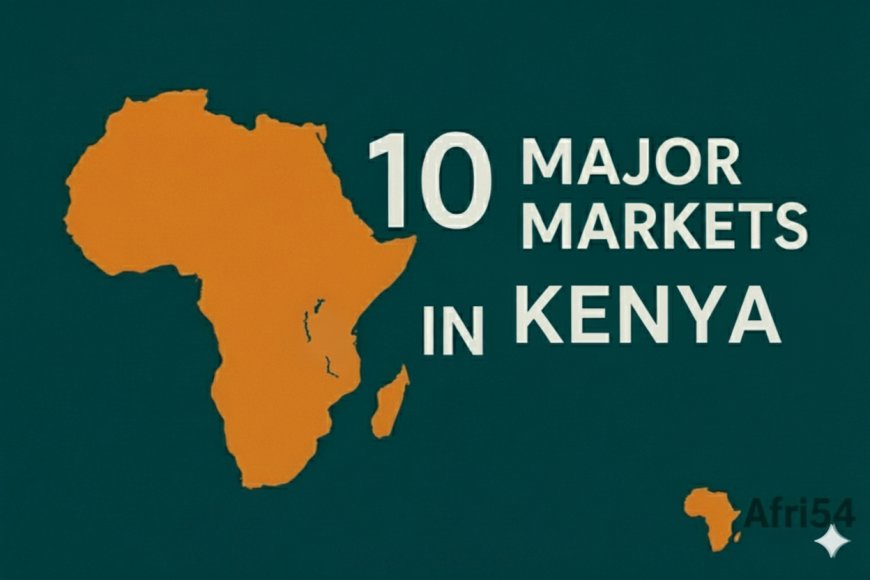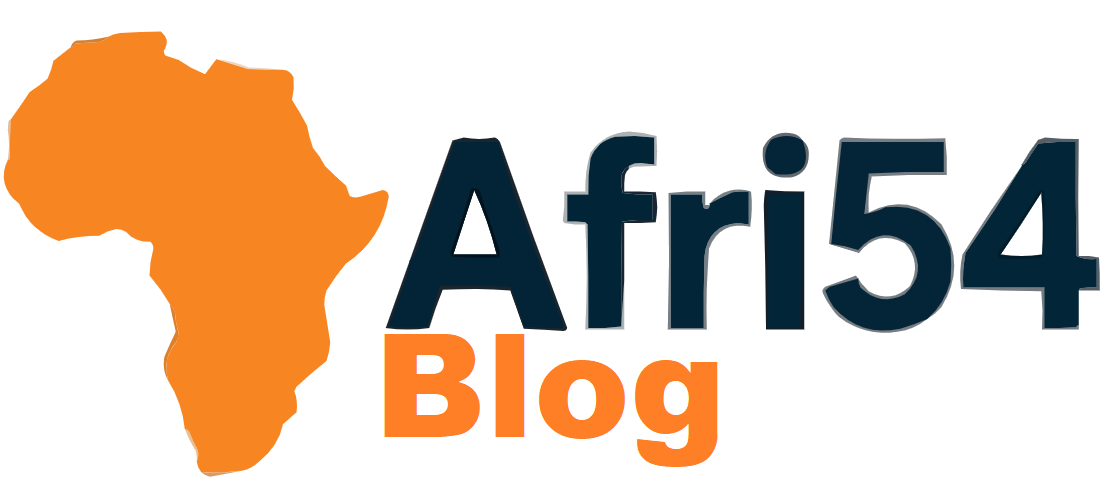10 Major Markets in Kenya
Discover the 10 major markets in Kenya, from Nairobi’s Gikomba and Maasai Market to Mombasa’s Kongowea. Explore Kenya’s vibrant trade, culture, and economy through its biggest markets.

Reading Time: ~8 minutes
Kenya, one of Africa’s most dynamic economies, is home to some of the largest and busiest markets in East Africa. These markets are more than just trading centers—they are places where culture, tradition, and community come alive. From fresh farm produce and Maasai crafts to electronics and fashion, Kenya’s markets offer everything you can imagine.
Here are 10 major markets in Kenya that showcase the country’s vibrant trade and culture.
1. Gikomba Market (Nairobi)
Kenya’s largest second-hand clothing market, Gikomba is a hub for affordable fashion. It is where thousands of traders buy and sell mitumba (second-hand clothes), shoes, bags, and fabrics. Known for its bustling activity, it plays a key role in the economy.
2. Maasai Market (Nairobi & Major Cities)
A cultural gem, the Maasai Market is popular among tourists and locals for handmade beadwork, jewelry, carvings, and Maasai attire. It rotates across different locations in Nairobi during the week, making it accessible to many.
3. City Market (Nairobi)
Located in Nairobi’s central business district, City Market is famous for flowers, souvenirs, carvings, and fresh produce. Its colonial-era architecture makes it a unique shopping experience.
4. Toi Market (Nairobi)
Situated along Ngong Road, Toi Market is a massive open-air market known for clothes, household items, and vegetables. It is a go-to destination for affordable everyday shopping.
5. Kongowea Market (Mombasa)
As Mombasa’s largest market, Kongowea spans over 16 hectares with more than 1,500 traders. It is known for spices, fresh produce, seafood, clothes, and household goods, making it the backbone of coastal trade.
6. Wakulima (Marikiti) Market (Nairobi)
Also called Marikiti, this wholesale market is the lifeline of Nairobi’s food supply. It deals in vegetables, fruits, grains, and livestock products, attracting farmers and traders from across the country.
7. Kariokor Market (Nairobi)
Famous for handmade sandals, beadwork, baskets, and crafts, Kariokor Market is a hub for creativity and culture. It supplies souvenirs to both locals and export markets.
8. Muthurwa Market (Nairobi)
Located near the central railway station, Muthurwa Market offers clothes, shoes, groceries, and electronics. Its location makes it one of the busiest markets in Nairobi.
9. Nyeri Market (Nyeri)
The largest market in central Kenya, Nyeri Market is popular for coffee, tea, fresh produce, and livestock products. It serves as an agricultural hub for farmers in the region.
10. Eldoret Market (Eldoret)
Eldoret Market is western Kenya’s biggest market, known for farm produce, cereals, clothes, and general goods. It supports both local consumption and cross-border trade with Uganda.
Why Kenya’s Markets Matter
Kenya’s markets are not just commercial spaces—they are economic engines that support millions of livelihoods. They provide affordable goods, encourage entrepreneurship, and preserve Kenya’s cultural identity through crafts and traditions.
Final Thoughts
Exploring Kenya’s markets—from Nairobi’s Gikomba to Mombasa’s Kongowea—offers a glimpse into the nation’s heartbeat. Whether you’re seeking fresh farm produce, traditional Maasai jewelry, or affordable fashion, Kenya’s markets bring people, culture, and trade together.
Have you listed your business on Afri54?
Afri54 exists to solve a fundamental challenge faced by millions of African businesses: lack of visibility. Whether you're an automobile part seller in Lagos, a local attire manufacturer in Kigali, a coffee exporter in Addis Ababa, or a mobile phone supplier in Accra, you deserve to be seen.
👉 Join now























